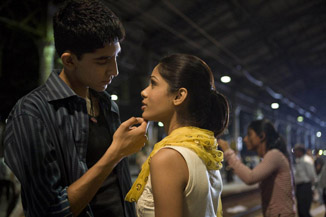|
|
What Went Right: Slumdog MillionaireBy Shalimar ShahotaDecember 2, 2013
Using the game show Who Wants to Be a Millionaire? as the backdrop for the film was a major factor. By the time Slumdog Millionaire was released, the show had been licensed to over 100 countries. Millions around the world had seen and enjoyed Who Wants to Be a Millionaire?, its simple format being a single contestant answering questions to win a cash prize. While Slumdog Millionaire is not necessarily about Who Wants to Be a Millionaire?, using a real game show that has been widely viewed around the world certainly made the film more accessible. Vikas Swarup, the author of the novel Q&A, upon which the film is based, revealed in an interview with The Guardian that changes were made, but they appeared to make for a better film. “Danny thought the hero should be arrested on suspicion of cheating on the penultimate question, not after he wins as I had it,” said Swarup. “That was a successful idea.” As well as dropping a few sub-plots, the film turned the two friends into brothers, and a name change saw Ram Mohammad Thomas became Jamal Malik. “It’s more dramatically focused as a result, perhaps more politically correct,” said Swarup on changing his main character’s unusual name, which combined three religions. “I was forewarned of the changes by Simon Beaufoy, the screenwriter.” Overall, Swarup had praise for the end result. “The film is beautiful. The plot is riveting. The child actors are breathtaking.” A British film that’s set in India, which ultimately received a significant push from an American distributor and countless awards; with Who Want to Be a Millionaire? at the centre of it, Slumdog Millionaire had immense global appeal. It was also an underdog story in both senses, given what’s played out on screen and how it became one of those rare instances of a film climbing up the charts. In the process it achieved praise, accolades, controversy and immense box office returns, offering plenty to talk about. One of the defining factors at work was the strong word-of-mouth, with the film’s considerable quality eventually highlighted by its four Golden Globe Awards, seven BAFTA’s and eight Oscars. And it is a feel good story, an unusual one, given that it involves torture, shootings, riots and fights. When interviewed by Empire magazine, Boyle said, “I think one of the reasons the film seems to work for people is that it is very extreme…You’ve got to portray it as an extreme experience.” Because anyone that jumps through shit, becomes an orphan and escapes from gangsters deserves to be rewarded… and audiences like a happy ending.
[ View other What Went Right columns ]
[ View other columns by Shalimar Sahota ]
[ Email this column ]
|

|
|
|

|
Sunday, April 28, 2024
© 2024 Box Office Prophets, a division of One Of Us, Inc.


